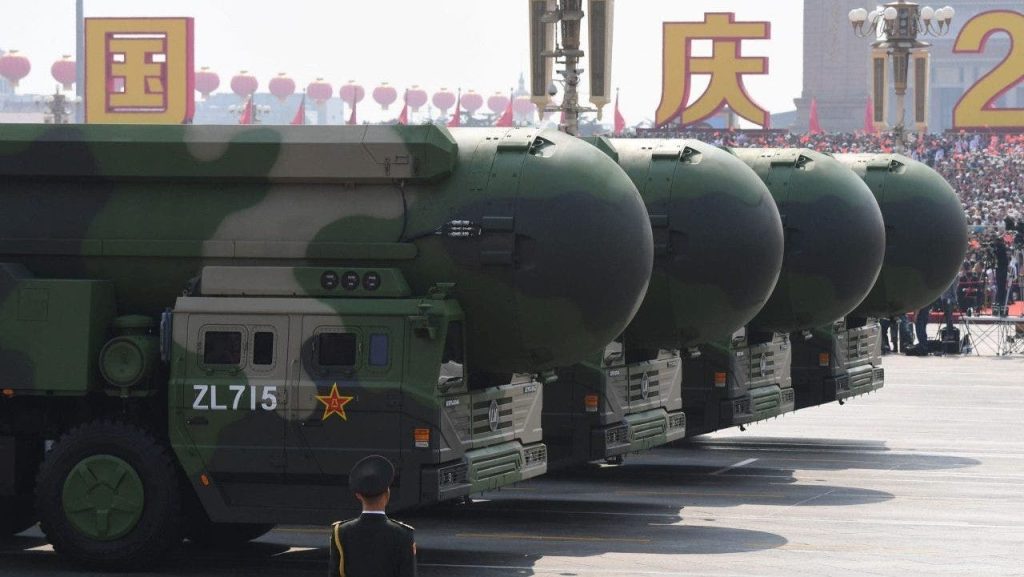China launched an intercontinental ballistic missile into the Pacific Ocean following a speech by President Biden at the U.N. General Assembly, where he called for security in the region. The missile carried a dummy warhead and was not targeting any specific nation, falling into the ocean without incident. The People’s Liberation Army’s Rocket Force claimed that the launch was part of its routine military training calendar, intended to showcase China’s military capabilities. Biden had highlighted the threat posed by China against Western interests and called for efforts to manage the competition with China to prevent conflict.
During his speech at the U.N. General Assembly, President Biden emphasized the need to uphold principles while responsibly managing competition with China to prevent conflict. He expressed readiness to cooperate with China on urgent challenges for the benefit of people around the world. Biden specifically mentioned the collaboration with China to stop the flow of deadly synthetic narcotics, acknowledging the importance of such cooperation for the well-being of people globally. The president also addressed the issue of military coercion, particularly in the South China Sea and across the Taiwan Straits, reaffirming the United States’ commitment to push back against unfair economic competition and military aggression.
The missile launch by China came shortly after Biden’s address at the U.N., where he underscored the significance of maintaining peace and stability in the region. The launch served as a demonstration of China’s military capabilities and readiness, potentially sending a signal to regional neighbors and international partners. As Biden urged for responsible management of competition with China, the missile launch highlighted the ongoing military developments and exercises conducted by China. The international community closely monitored China’s actions in response to the missile launch and its implications for regional security dynamics.
President Biden’s remarks on combating military coercion and unfair economic competition in the region reflect the United States’ strategic interests in maintaining stability and security. By addressing the threats posed by China to regional stability, Biden signaled the importance of upholding international norms and rules-based order. The emphasis on cooperation with China on shared challenges while pushing back against military aggression underscores the complex nature of U.S.-China relations and the need for a nuanced approach in managing the competition. The missile launch by China and Biden’s speech at the U.N. highlighted the ongoing power dynamics and strategic calculations shaping relations between major powers.
The missile launch by China and Biden’s address at the U.N. General Assembly underscored the evolving geopolitical landscape and security challenges facing the international community. As major powers like the U.S. and China navigate their complex relationship, the need for responsible leadership and strategic dialogue becomes increasingly critical. The missile launch by China and Biden’s emphasis on upholding principles while managing competition reflect the ongoing geopolitical tensions and the delicate balance of power in the region. As the international community grapples with security concerns and regional stability, the actions and statements by world leaders play a key role in shaping the future trajectory of global security and cooperation.
Despite the missile launch by China and Biden’s call for responsible management of competition with China, the broader implications for regional security and stability remain uncertain. The evolving dynamics between major powers, strategic calculations, and military capabilities of nations shape the security landscape in the region. As tensions persist and competition intensifies, efforts to prevent conflict and promote cooperation become increasingly challenging. The missile launch by China and Biden’s speech at the U.N. highlighted the complex interplay of economic, military, and diplomatic factors influencing global security dynamics. Moving forward, engaging in meaningful dialogue and strengthening international partnerships will be essential to address the security challenges and promote peace in the region and beyond.


